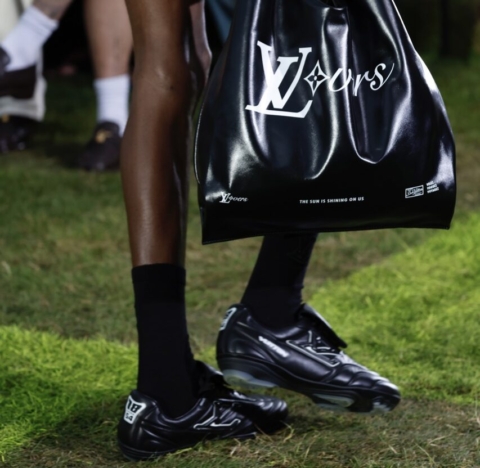5 of 100
By Jo Phillips
Global Grad Show, the world’s most diverse gathering of graduate ideas for social impact who is unveiling 100 new projects that change the world and way we live on the 9th Nov read here in 5 of 100 as the picks from the full list.
Twenty-four UK and Ireland entrants are among the 100 chosen submissions from around the world. Inventors from Imperial College London, Harvard and the Samsung Art and Design Institute all pushing the boundaries of technology and design with health products that have the potential to change lives. Selected students will be invited to a new cohort of the entrepreneurship programme that accelerates the development of impact innovations. Problems tackled by the innovations include Sudden Infant Death Syndrome, injury rehabilitation, diabetes monitoring, pollution, epilepsy seizures, elderly falls, poor food choices, Parkinson’s disease and communication for the hard of hearing.
Selected five entries include:
An air purifier to combat pollution on the London Underground, Royal College of Art: Airtomo proposes a decentralised, dynamic way to purify the air. Airtomo wearables offer individuals a personal vapour cloud that actively cleans the air one breathes or reduces resuspension induced by foot motion and consumes nominal resources. Most importantly, the process is visually tangible, thus motivating adoption. By Kevin Chiam

A wearable injury prevention device, Imperial College London: injury prevention for an active future. SCALED uses a parametric algorithm to produce flexible & custom-fit protective wearables by applying nature-inspired interlocking scales for precise motion control according to a wearer’s needs. SCALED is used for injury prevention, rehabilitation & sports performance enhancement through regulated motion control. By Natalie Kerres

A non-invasive blood glucose ‘earring’ that tests blood sugar through radiowaves, University of Huddersfield. The earring design is the safe to use utilising high-frequency radio-waves, penetrate through the lobe to provide data on the characteristics of the blood, no blood sample required. Inspired by wearable technology, the device is designed to be discreet, yet personal and encourage frequent testing, even when the user would feel most uncomfortable doing so. The device can be personalized through choosing the design of the interchangeable buttons, to the API which helps the user share their glucose data, analyse trends, and keep on top of their Type 1 diabetes. By Tara Kozlow

A baby monitor that reduces the risk of Sudden Infant Death Syndrome via magnets attached to the child’s collar, Cardiff Metropolitan University. A system which actively monitors an infants sleeping orientation to reduce the risk of Sudden Infant Death Syndrome (SIDS). The device attaches via magnets and utilises sensor technology to alert parents if their baby rolls over during sleep. Long gone are the days of a stationary baby monitor fixed to your beside at a higher cost than need be, now mBaby provides not only reassurance at a minimal cost, but parents can monitor remotely. By Jamie Eynon

Skin patch that monitors nutrition data, Royal College of Art. “Knowtrition” is a preventive healthtech and food retail innovation designed for people who aim to maintain a well-balanced diet routine to prevent potential chronic diseases in the future. This consists of a scanner in a biodegradable bag; a skin patch that monitors nutrition data in the body and displays food information food; and an app that calculates the nutritional needs of the user based on food purchasing history and health data, as well as generating product suggestions. By Knowtrition Agata J., Anya M., Yi-Fan H. & ZhiYi Z.

Tadeu Baldani Caravieri, Director, Global Grad Show comments: “Over the last six months we’ve been reminded just how vital good health, balanced natural ecosystems and well-equipped public services are to a happy, productive and future-ready society. Equally, we’ve paid more attention than ever to the power of new technologies in optimising resources, shortening distances and minimising collateral damage.”
“By offering these graduates a development programme, we hope to accelerate the creation of solutions to communities around the world. We do that by bringing together know-how and key private and public stakeholders, together creating collaboration and funding opportunities to our community.”
The programme, now in its sixth year, and held in partnership with Dubai Culture and A.R.M Holding, saw entries rise by 30% and features ideas from leading institutions such as Imperial College and Harvard, alongside first-time representation from countries such as Indonesia, El Salvador and Oman.
The projects will be brought to life in an inaugural interactive digital exhibition on globalgradshow.com, giving a voice to the next generation of innovators and connecting the public and potential investors all over the world with ideas that have the potential to change lives. The virtual exhibition will showcase the graduates behind each one of ideas and will also see prototypes, films and original research material visually curated for online visitors to engage and interact with.



